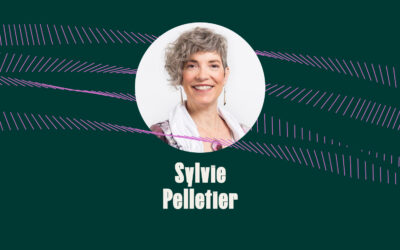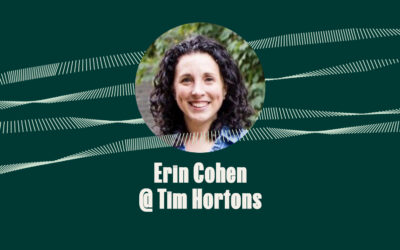
Ruth Fittock joined Simply Roasted as the Marketing Director after a decade in crisps/chips marketing at the likes of Pop Chips… so she’s got a whole host of knowledge to share about how to do marketing well within the ‘better for you’ category.
Tune in to this episode to get details about:
-
How Simply Roasted hopes to capture market share in the ‘better for you’ category
-
How to build a messaging hierarchy for on-pack claims in a category like crisps/chips
-
How marketing in this category has changed over the last 10 years
-
Some valuable marketing lessons Ruth carried over from her time at Pop Chips to her role at Simply Roasted
-
What’s happening in this category right now that means it’s an interesting place to be as a marketer
A Few Highlights From the Episode:
Meagan: What are some valuable lessons that you carried over from your time at popchips to your current role at Simply Roasted?
Ruth: I mean, so much. I think probably one of the most useful things, it has been a real kind of guideline in the back of my head the whole time… it is probably the consumer and the attitudes to health that I saw just from days of sitting through focus groups. And yeah, I mean, that’s a top tip. If you have the opportunity to sit in on the focus group, even if you don’t want to sit in a windowless room for hours, do it. Because even years later, having that kind of exposure to how people are is great. I think you kind of need to be there in real life to really get it. But a lot of assumptions I had to just go about totally debunked, understanding how people feel about health. And you know, time passes by. They think these things change deeply. And I think the biggest thing being how people don’t actually feel guilty when they make bad food choices most of the time.
So at popchips we had some really great witty lines that talked about guilt. We tested them and they just totally bombed. I think because, you know, often people have their own life and problems. So they might have a bag of chips. Then they go into the gym later or you’ve had a really good week. Now they’re rewarding yourself. And it’s very nuanced. I’m telling someone “you should feel guilty about that”. This does not go down well because you might be like “I’ve earned that” or “I’m going to make up for later” or, you know, “just leave me alone”.
Meagan: Totally. I remember when I was growing up, a huge trend was just everything as low calorie as humanly possible. And now I feel like people want more opportunities to indulge in food without it being something bad. Are you seeing that with your research?
Ruth: I think that the category has moved on, but brands have been a bit slow to keep up with that. And now, definitely. And maybe it’s because coming through a pandemic and how we think about health has changed. So for a long time, you know, “better for you” really was about weight loss, even though some are like, “No, it’s not anymore”. It still was. You know, this all sort of “strong, not skinny”, is still sort of about weight loss, really. There is now health. I think people are looking at it more holistically. It’s about feeling good. It’s about having energy. It’s about longevity. It’s about immunity and being well. And that is a really positive thing. I think, and I think “better for you” has been great for the whole time I’ve been in it, and I don’t see any reason why that would change anything. I think it’s getting more mainstream and it’s actually broadening. But I think that’s really positive that it’s shifting from that like diet deprivation mentality to just, “wow, isn’t it better to feel good?” And actually, we know if we eat better food, we feel good, feel good about ourselves. But also, you know, we have more energy. And that for me is, you know, is why I like working in this category. I think it’s a positive thing. And listen, you can kind of help. People make slightly better decisions that are going to make them feel better in the long run, and that’s that’s good.
Meagan: Yeah, it’s not a fully formed thought. So I don’t know. But it takes me back to that bridging of the gap between, you know, the the crisps and the, you know, the popchips of the world or the kettle chips of the world and kind of where you guys are slotting yourselves in because you it doesn’t have to be about “I’m going to have crisps and I’m going to feel really guilty”. I’m really going to indulge. So I’m only going to have crisps occasionally or it’s like, “I’m going to eat something that doesn’t have as great of a flavor profile. But I don’t feel at all guilty because I know that it’s really low calorie or low low salt or whatever it is”. It’s kind of like removing that, yeah, removing that layer of feeling and just making it sort of a normalized snack.
Ruth: … without any kind of overstatement. It’s a very difficult job trying to communicate that because obviously you can’t overstate it because a lot of the time you’re just impulsive, just picking stuff up. And you don’t want to be told either that, “Oh, we’re making this choice easy for you because you think I know this is not a choice to me, I’ve got much more important things going on in my life.”
But then at the same time, you know, there’s little choices that you make in the day add up and kind of make you feel better when you know that you’ve kind of made a slightly better choice.
So yeah, it’s you think… I remember when I first started at popchips, I thought, this is an absolute no brainer. You know, like crisps with less grams of fat, what’s not to love and then actually as I got into it, I was like, “Oh no, this is quite tough” because people think as soon as you start talking about less fat, less calories, it’s just not going to be tasty. And then I thought, you know, I’m a massive chocolate lover myself. Someone said to me, this chocolate bar tastes good and has half of the fat or preservatives, I wouldn’t believe them. I wouldn’t. I wouldn’t pick that up.
Find the rest of the episode here.
If you want to learn about Simply Roasted, check out their website.
Subscribe to Dig In on your favourite podcasting platform and follow us on LinkedIn to keep an eye on more episodes.


